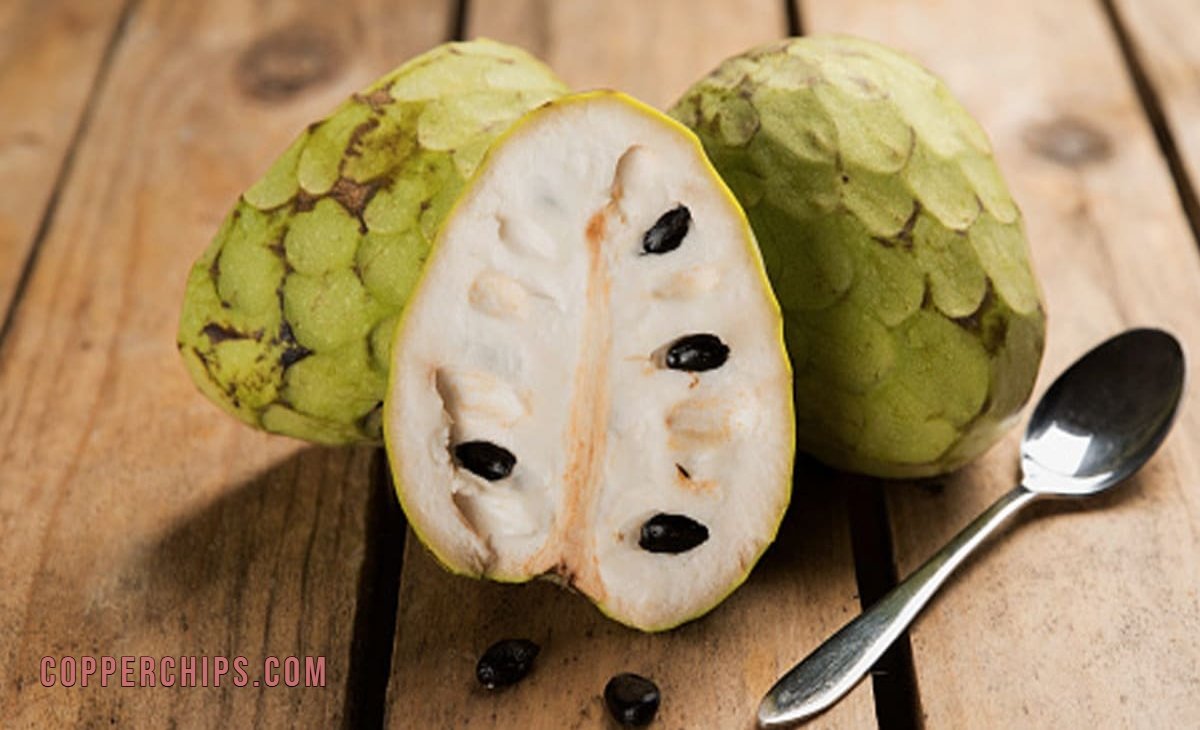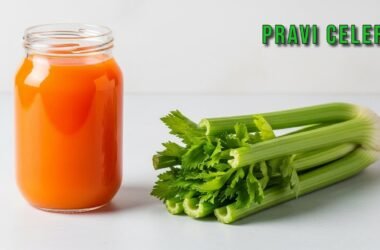Nature has a knack for hiding its most delightful treasures in the most unexpected places. The custard apple, also known as sugar apple or cherimoya in some parts of the world, is a perfect example. Beneath its scaly green skin lies a creamy, fragrant flesh that has won over fruit lovers across tropical and subtropical regions. This humble fruit is more than just a tasty treat. It’s a powerhouse of nutrients, antioxidants, and medicinal properties, making it one of the most underrated fruits on the planet.
With increasing global attention to healthy eating, superfoods, and sustainable agriculture, the custard apple has emerged from its tropical groves and is slowly gaining its rightful spot on grocery shelves and in nutritionists’ recommendations. Let’s peel back the layers and discover everything there is to know about custard apple.
Custard Apple
The custard apple, scientifically known as Annona squamosa, belongs to the Annonaceae family and thrives in warm climates. Native to South America and the West Indies, it’s now widely grown in Asia, Africa, and tropical regions of the Americas. It’s known by various names—Sitaphal in India, sweetsop in the Caribbean, and sugar apple in many English-speaking countries.
The fruit resembles a pine cone with its lumpy green exterior, but crack it open and you’re greeted by velvety flesh that’s rich, aromatic, and slightly grainy. The flavor is often described as a mix between banana, pineapple, and vanilla custard.
Nutritional Profile of Custard Apple
Custard apple is low in fat but rich in essential nutrients, making it ideal for a balanced diet. A 100-gram serving of this fruit provides:
Calories: 94
Carbohydrates: 23.6 g
Fiber: 4.4 g
Protein: 2.1 g
Vitamin C: 20 mg (33% of daily value)
Potassium: 382 mg
Magnesium: 17 mg
Vitamin B6, calcium, iron, and antioxidants
This nutritional blend supports immunity, cardiovascular health, skin radiance, and metabolic functions.
Boosts Immunity Naturally
One of the most celebrated aspects of custard apple is its high vitamin C content. This powerful antioxidant fights free radicals and strengthens your body’s defense system. Regular consumption can reduce the risk of infections and common colds. Moreover, its natural antibacterial properties provide additional protection against pathogens.
Supports Healthy Digestion
Thanks to its rich fiber content, custard apple aids in digestion by regulating bowel movements and preventing constipation. The soluble fiber also acts as a prebiotic, feeding beneficial gut bacteria and promoting a healthy digestive environment. People suffering from bloating or irregular bowel movements may find relief with consistent intake of this fruit.
Improves Vision and Eye Health
Custard apple is a good source of vitamin A and riboflavin—both crucial for maintaining good eyesight. The antioxidants in the fruit protect the eyes from oxidative damage, which can lead to conditions like macular degeneration and cataracts as one ages.
Promotes Heart Health
Loaded with potassium and magnesium, custard apple helps regulate blood pressure and improves heart rhythm. It lowers bad cholesterol (LDL) levels while increasing good cholesterol (HDL). Moreover, its vitamin B6 helps prevent the accumulation of homocysteine, a compound associated with cardiovascular diseases.
Helps Manage Diabetes
While sweet in taste, custard apple has a low glycemic index. Its fiber helps in the slow release of sugar into the bloodstream, making it suitable in moderation for diabetics. The fruit also contains polyphenols that improve insulin sensitivity and glucose metabolism.
Aids in Weight Gain for Underweight Individuals
Custard apple can be an excellent food choice for those trying to gain healthy weight. It’s calorie-dense and provides energy without unhealthy fats. When paired with milk or nuts, it can be a potent part of a weight-gain regimen.
Improves Skin Radiance and Youthfulness
Rich in vitamin C and antioxidants, custard apple combats free radicals responsible for premature aging. It promotes collagen production, reducing fine lines and giving your skin a youthful glow. Moreover, it contains natural moisturizers that can hydrate your skin from the inside.
Strengthens Hair and Prevents Dandruff
The high iron content in custard apple boosts hemoglobin, which improves blood flow to the scalp and strengthens hair roots. It also contains vitamin A, which helps in sebum production, preventing dry scalp and dandruff.
Fights Inflammation
Custard apple is rich in flavonoids and other anti-inflammatory compounds that reduce swelling, joint pain, and muscle stiffness. It’s beneficial for people with arthritis or inflammatory bowel diseases.
Relieves Asthma and Respiratory Issues
Custard apple’s expectorant properties help in clearing mucus from the respiratory tract. Its vitamin B6 reduces bronchial inflammation and promotes better oxygen flow, offering relief to asthmatic patients.
Improves Brain Health
This fruit contains vitamin B complex, particularly B6, which plays a critical role in cognitive function. It supports neurotransmitter synthesis, reducing the risk of neurological disorders like Parkinson’s and Alzheimer’s.
Natural Stress Reliever and Mood Enhancer
Magnesium and potassium in custard apple calm the nervous system. It’s been traditionally used to manage anxiety, mood swings, and even mild depression. The fruit acts as a natural sedative and can promote better sleep.
Detoxifies the Body
Custard apple helps flush out toxins due to its antioxidant properties. Its dietary fiber binds to harmful waste and ensures efficient elimination through the digestive system. Consuming it regularly helps maintain liver health.
Supports Bone Health
With calcium, phosphorus, and magnesium, custard apple plays an essential role in strengthening bones and preventing conditions like osteoporosis. Its mineral content is especially beneficial for aging individuals and growing children.
Safe During Pregnancy
Custard apple is recommended during pregnancy due to its high nutritional value. It helps in the brain and nervous system development of the fetus. Additionally, it reduces the risk of miscarriage and alleviates morning sickness.
Boosts Energy Levels
Packed with natural sugars like glucose and fructose, custard apple provides an instant energy boost. It’s an excellent snack for athletes and those with high energy requirements.
Acts as a Natural Aphrodisiac
Historically, this apple has been used in traditional medicine as a libido enhancer. The fruit stimulates sexual arousal and improves reproductive health in both men and women.
May Help Fight Cancer
Custard apple contains acetogenins, compounds that have shown anticancer properties in laboratory studies. These may help inhibit the growth of cancer cells, especially in breast and colon cancer. More human studies are needed, but initial research is promising.
Custard Apple in Ayurveda and Traditional Medicine
In Ayurveda, custard apple is known as “Sharifa” and is used to balance Vata and Pitta doshas. The leaves, bark, and seeds are also used in traditional medicine to treat ulcers, wounds, and even lice infestations.
How to Eat Custard Apple
Eating this apple is easy. Just split the fruit and scoop out the flesh. Avoid the hard black seeds as they are inedible. It can be enjoyed raw, blended into smoothies, used in milkshakes, or added to desserts like custards and puddings.
Growing Your Own Custard Apple Tree
Growing this apple is relatively simple in warm climates. It prefers well-drained soil, moderate watering, and full sunlight. The tree usually bears fruit within three years and requires minimal maintenance once established.
Potential Side Effects and Precautions
While custard apple is generally safe, overconsumption can cause weight gain due to its natural sugars. The seeds are toxic if crushed or chewed, so they should always be discarded. People with certain allergies or on medications should consult a healthcare provider before adding it to their diet.
Conclusion
The custard apple is more than just a sweet and exotic fruit. It’s a nutritional gem with a wide range of health benefits that cater to the body, mind, and soul. Whether you’re eating it to boost your immunity, enhance digestion, or simply indulge in nature’s dessert, this fruit deserves a place in your diet. Its versatility in recipes and ease of cultivation also make it a favorite among gardeners and food lovers alike.








